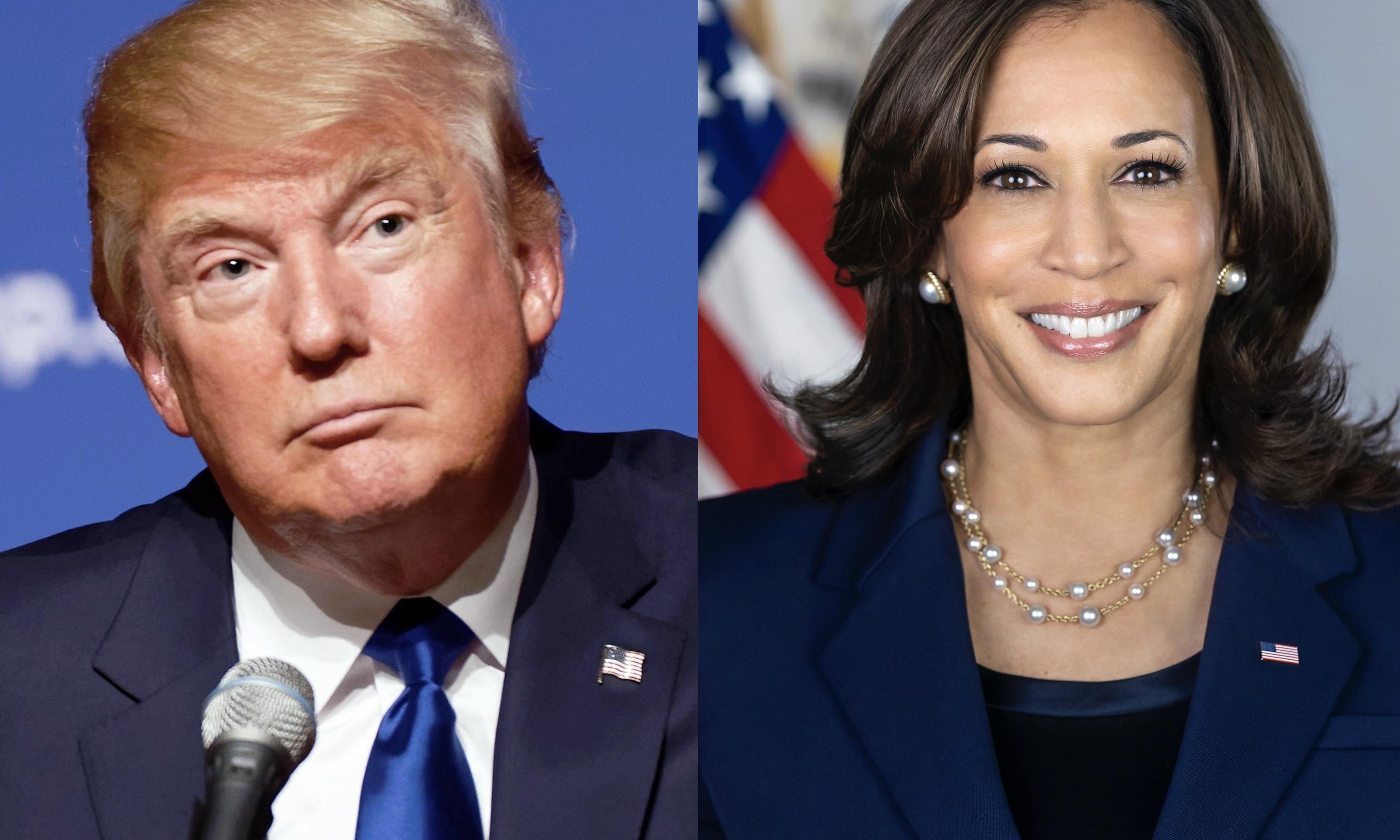As the 2024 presidential race heats up, a critical question emerges: where do Christian voters stand? With former President Donald Trump poised for a potential return to the White House and Vice President Kamala Harris possibly making her own historic run, the religious vote is once again a key battleground. Christian voters, who have played a decisive role in recent elections, are now navigating a complex landscape shaped by policy differences, moral considerations, and each candidate’s appeal to religious values.
Donald Trump, known for his strong support among evangelical Christians, continues to maintain a solid base within this demographic. During his presidency, Trump advanced policies that resonated with conservative Christians, such as appointing three Supreme Court justices who helped overturn Roe v. Wade, a decision that many religious voters celebrated as a victory for the pro-life movement. Additionally, Trump’s support for religious freedom and his vocal opposition to certain cultural shifts have earned him widespread backing from evangelical leaders and organizations.
On the other hand, Kamala Harris, who has steadily gained political prominence as vice president, presents a more progressive vision that appeals to a different segment of the Christian electorate. Harris, who is seen as an advocate for social justice, racial equality, and immigration reform, has attracted Christian voters who prioritize these issues as central to their faith. Her approach to policy, which often emphasizes compassion and equity, resonates with Christians who see their religious beliefs aligning with more liberal values, particularly on topics like healthcare, poverty, and climate change.
However, Harris faces challenges in garnering widespread Christian support, particularly among conservative denominations. Her pro-choice stance and support for LGBTQ+ rights are seen as controversial by many within the evangelical community. These positions have contributed to a clear divide within the Christian electorate, with some voters questioning whether her policies align with their moral values. Despite this, Harris has worked to build connections with faith communities, focusing on issues of racial justice and economic inequality, areas where some Christians feel a moral imperative to act.
As the 2024 election draws near, both Trump and Harris are expected to court religious voters with distinct messages. Trump will likely continue emphasizing his record on judicial appointments, religious liberty, and traditional values, hoping to solidify his support among evangelicals and other conservative Christians. Harris, meanwhile, will aim to broaden her appeal to Christians by highlighting issues like healthcare, social justice, and immigration, which may resonate with younger and more diverse religious voters.
Ultimately, the Christian vote in 2024 is not monolithic. It spans a wide spectrum of beliefs and political priorities, from conservative evangelicals to progressive Catholics and mainline Protestants. The outcome of the election could hinge on which candidate successfully engages this influential voting bloc, making the Christian electorate a focal point in the race for the White House.



 Rubio Says U.S. Would Not Target School After Deadly Iran Strike Reports
Rubio Says U.S. Would Not Target School After Deadly Iran Strike Reports  Middle East Air War Triggers Massive Flight Cancellations and Global Airline Disruptions
Middle East Air War Triggers Massive Flight Cancellations and Global Airline Disruptions  Michael Whatley Wins North Carolina GOP Senate Primary, Setting Up High-Stakes Battle With Roy Cooper
Michael Whatley Wins North Carolina GOP Senate Primary, Setting Up High-Stakes Battle With Roy Cooper  Trump Says U.S.-UK Relationship Has Deteriorated After Starmer Hesitates on Iran Strikes
Trump Says U.S.-UK Relationship Has Deteriorated After Starmer Hesitates on Iran Strikes  Pentagon Downplays ‘Endless War’ Fears After U.S. Strikes on Iran Escalate Conflict
Pentagon Downplays ‘Endless War’ Fears After U.S. Strikes on Iran Escalate Conflict  European Allies Deploy Air Defenses to Cyprus After Drone Attack on RAF Akrotiri Base
European Allies Deploy Air Defenses to Cyprus After Drone Attack on RAF Akrotiri Base  Trump Offers U.S. Insurance and Naval Escort for Tankers as Strait of Hormuz Crisis Disrupts Global Oil Trade
Trump Offers U.S. Insurance and Naval Escort for Tankers as Strait of Hormuz Crisis Disrupts Global Oil Trade  Iran Detains U.S. Citizens Amid Escalating Conflict With the United States and Israel
Iran Detains U.S. Citizens Amid Escalating Conflict With the United States and Israel  AI is already creeping into election campaigns. NZ’s rules aren’t ready
AI is already creeping into election campaigns. NZ’s rules aren’t ready  Why did Iran bomb Dubai? A Middle East expert explains the regional alliances at play
Why did Iran bomb Dubai? A Middle East expert explains the regional alliances at play  Israel Prepares Weeks-Long Military Campaign Against Iran Amid Escalating Air Strikes
Israel Prepares Weeks-Long Military Campaign Against Iran Amid Escalating Air Strikes  Trump and Merz Meet at White House Amid Iran Strikes and Trade Tensions
Trump and Merz Meet at White House Amid Iran Strikes and Trade Tensions  U.S. Military Strikes on Iran Complicate Xi-Trump Summit and Expose China’s Energy Risks
U.S. Military Strikes on Iran Complicate Xi-Trump Summit and Expose China’s Energy Risks  U.S. Middle East Strikes Raise Indo-Pacific Security Concerns for Japan, South Korea, and Taiwan
U.S. Middle East Strikes Raise Indo-Pacific Security Concerns for Japan, South Korea, and Taiwan  Suspected Iranian Drone Hits CIA Station at U.S. Embassy in Riyadh Amid Rising Middle East Tensions
Suspected Iranian Drone Hits CIA Station at U.S. Embassy in Riyadh Amid Rising Middle East Tensions  Defense Contractors Move to Drop Anthropic AI After Trump Administration Ban
Defense Contractors Move to Drop Anthropic AI After Trump Administration Ban  Does international law still matter? The strike on the girls’ school in Iran shows why we need it
Does international law still matter? The strike on the girls’ school in Iran shows why we need it 



























